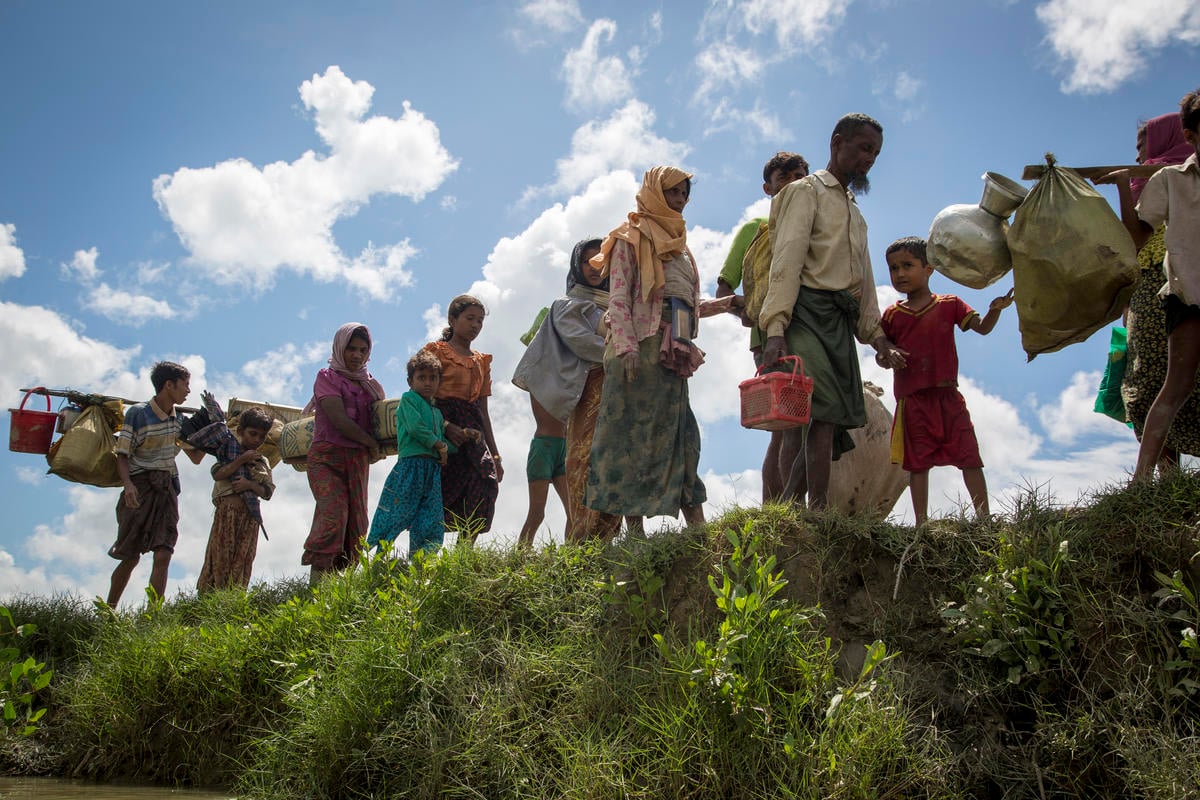Rohingya woman in India pursues her university dream

Rohingya woman in India pursues her university dream
“It pains me to know that I am the first Rohingya girl to get admission to university in India. I have often wondered about the lives of others before me,” said Tasmida Johar.
The 21-year-old is currently studying for a bachelor’s degree in Political Science from Delhi University, making her one of relatively few refugees pursuing university studies anywhere in the world. Only 3 per cent of young refugees globally are enrolled in higher education courses, according to a recent report by UNHCR on refugees’ access to education.
Tasmida’s earliest memory of home is of when she left Rakhine State, Myanmar at the age of five. “In my village, there was no schooling beyond the tenth grade. Most girls were married off early to prevent gender-based violence against women,” said Tasmida.
After fleeing to Delhi, India in 2012, Tasmida quickly enrolled in several bridge classes to resume her education. Within five years, she had secured admission to the tenth grade through the National Institute of Open Schooling (the board of education under the Government of India). “Despite cultural and societal pressures, my brother Ali convinced the elders in my family to support my education,” she recalled.
Although Tasmida’s achievement – she is the first Rohingya girl in India to successfully complete the tenth grade – was covered widely in the Indian national media, it did little to take Tasmida closer to her larger goal of becoming a doctor.
“In the Rohingya community, there are hardly any female doctors treating women and children,” said Tasmida.
To be eligible for the Indian national medical entrance exams, Tasmida would have had to be enrolled in a regular school, with science as her specialization.
Upon realizing this, Tasmida and her brother Ali made several visits to schools in Delhi for her admission. “Since we had no official documents, no one was willing to offer admission,” she said.
Unfortunately, even if Tasmida had had all the relevant documentation, to qualify for a medical school in India, she would have needed to clear several rounds of rigorous examinations or the financial resources to enroll in a private institute.
Based on the choices available to her and largely due to her indomitable spirit, Tasmida quickly shifted gears and decided to become a lawyer and fight for the rights of her people.
Before long, Tasmida had secured admission to a Humanities course at a school in Delhi that offered education for women and girls who had previously dropped out of their studies. She was able to achieve this through the support of programmes administered by the local authorities, local civil society organizations and a UNHCR partner organization, BOSCO.
In 2019, after successfully completing the twelfth grade, with the support of the Albert Einstein German Academic Refugee Initiative (DAFI) of the German Government, Tasmida secured admission in a bachelor’s programme to study Political Science at Delhi University.
Since its inception in 1992, the DAFI scholarship programme has supported over 18,000 refugee students in around 50 countries across the world. In India, it is administered by UNHCR and offers refugee students the opportunity to pursue an undergraduate degree and to succeed academically. To date, 219 students in India have benefitted from the scholarship.
“Thanks to the scholarship, I have been able to enroll for coaching classes and catch up on my coursework,” Tasmida said.
Earlier this year, as Tasmida was finishing the first year of her bachelor’s programme, the COVID-19 pandemic caused her and her fellow students to shift from regular classes to online learning. “Taking online classes with more than 100 students was my biggest challenge,” she added.
In India, many students, from both the refugee and local host community, do not have their own computers and are using mobile phones for learning. In addition to internet connectivity issues, some families do not have enough phones for each child to attend their classes.
Despite the difficulties, Tasmida was able to quickly adapt and finish her exams in June.
She is currently awaiting the results of the first-year examinations. “Once I complete my bachelor’s programme, I will continue to pursue my dream of obtaining a law degree,” she added.
Tasmida’s story has inspired many Rohingya girls such as Mizan, who studies in the seventh grade. “When I was in the fourth grade, I was asked to drop out of school by my father,” she said. However, Mizan’s mother, moved by Tasmida’s story, convinced her husband to let their daughter continue her education.
She may have come a long way, but Tasmida is far from resting on her laurels. “I want to set an example in my community and be a role model to Rohingya women,” she said.









